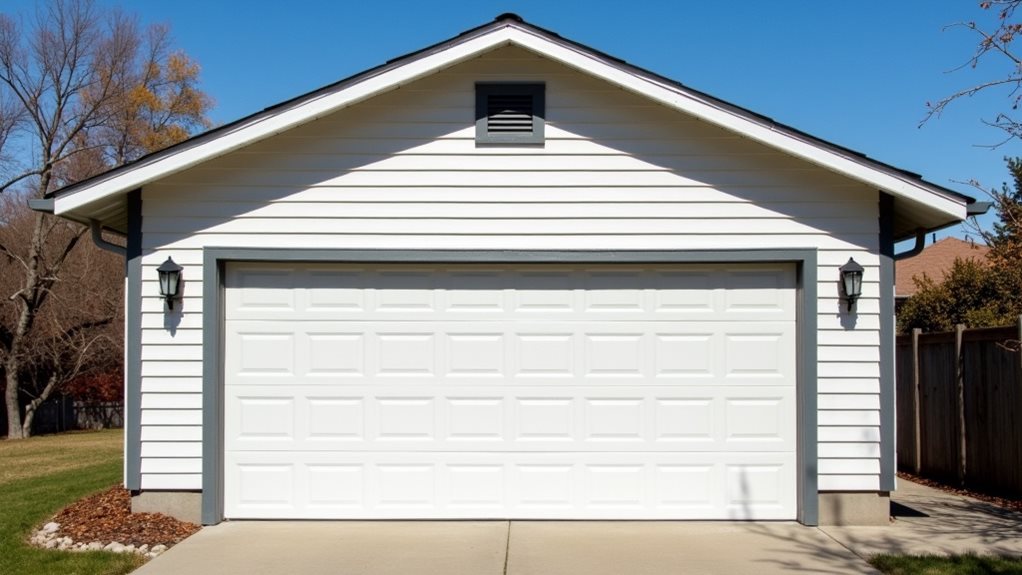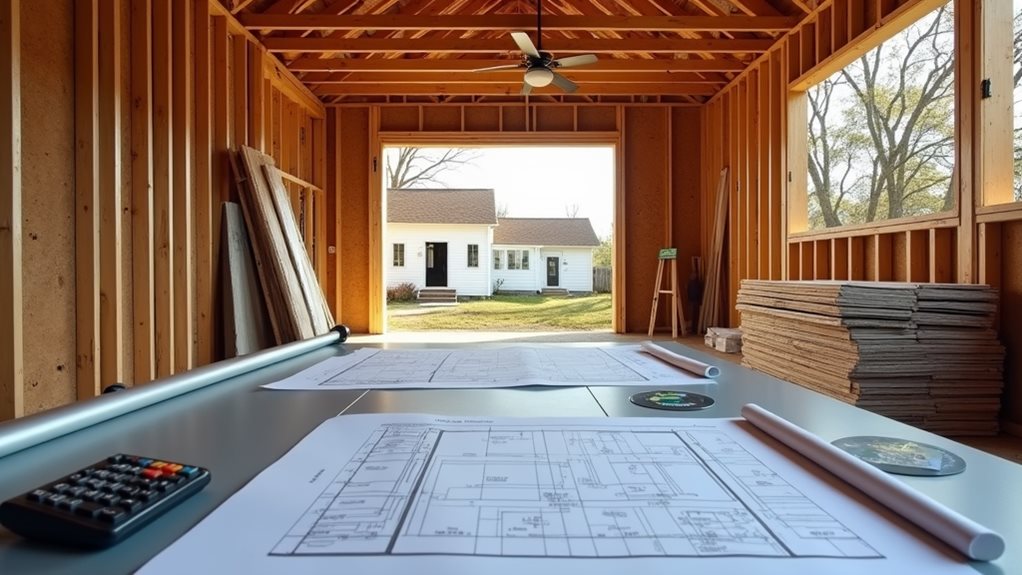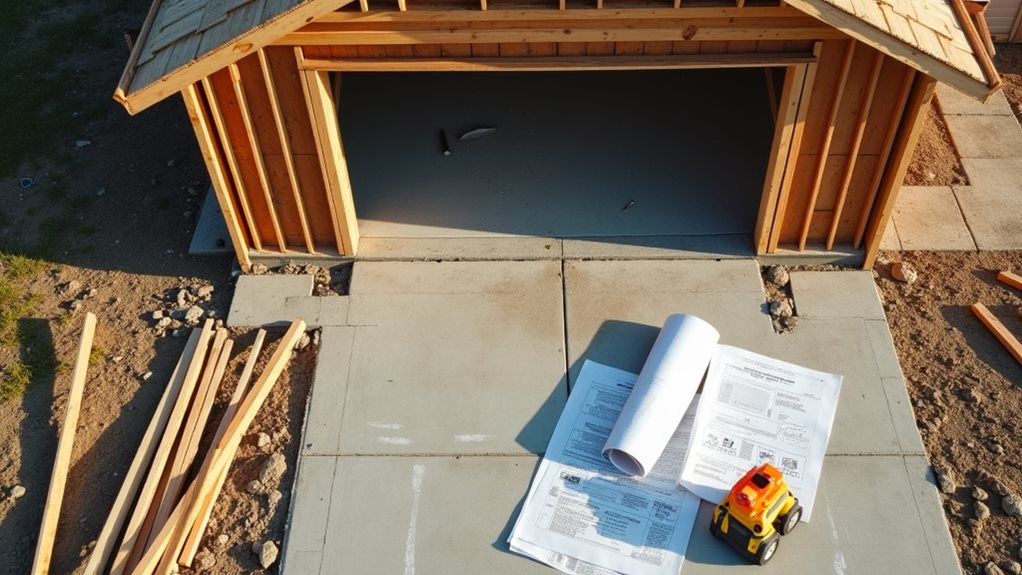Phone:
(701)814-6992
Physical address:
6296 Donnelly Plaza
Ratkeville, Bahamas.

Transform your detached garage with these critical expansion tips, from budgeting basics to crucial permits and design decisions.
When extending your detached garage, start by establishing a realistic budget of $60-120 per square foot and planning for a 5-16 week timeline. You'll need to carefully match exterior materials and architectural details with your existing home to maintain visual harmony and property value. Partner with licensed contractors who understand local building codes, and guarantee you obtain all necessary permits before construction begins. These foundational steps will set you up for a successful expansion project.

When you're planning to extend your detached garage, understanding the financial scope and timeline requirements will help you avoid unexpected challenges and budget overruns.
Your cost breakdown will typically range from $60 to $120 per square foot, with larger projects demanding more extensive planning and resources. For most homeowners, a basic extension adds $9,600 to $24,000 to accommodate another vehicle bay. Partnering with a licensed contractor can provide a return on investment of 60-80% for your garage extension project.
Labor considerations should factor prominently in your timeline planning. You'll need to account for 5 to 7 weeks for a single-car extension and up to 16 weeks for multi-car projects.
Don't forget to include time for demolition and foundation work, which can add another 3 to 4 weeks to your schedule. Working with professional contractors who understand local building codes will guarantee your project stays on track.
Creating a seamless connection between your home and garage extension requires thoughtful attention to architectural harmony and design elements.
You'll achieve design coherence by matching exterior materials and finishes with your existing house, while incorporating similar architectural details guarantees visual consistency throughout your property. Additionally, working with local builders who have extensive experience in extensions can significantly enhance your project's outcome.
To maintain architectural consistency, you'll want to repeat key elements from your main house, such as window styles, door designs, and trim work.
Consider installing matching brick or siding, and unify the structures with complementary colors.
You can enhance the connection by adding linking features like pergolas or green walls, which create a natural flow between spaces.
Don't forget to incorporate modern conveniences while preserving the overall aesthetic – smart technology and energy-efficient solutions can blend seamlessly with traditional design elements.
For optimal cost efficiency, consider that local zoning laws will determine how close to property lines you can build your extension.

Before breaking ground on your garage extension project, you'll need to navigate the complex landscape of building permits and code requirements. Your first step is submitting a thorough permit application to your local building department, complete with architectural plans and property surveys that demonstrate compliance with zoning laws.
You'll want to gather all necessary documentation upfront, including engineering reports and proof of ownership, to avoid delays in the approval process.
Don't forget that separate permits might be required for electrical and plumbing work. Once you've secured your permits, schedule regular inspections throughout the construction phase to guarantee your project meets all building codes.
Just like Rome wasn't built in a day, your garage extension requires careful planning, strategic design, and diligent permit navigation. You'll find that investing time in these three essential areas now will save you countless headaches later. When you've finished your project, you'll have more than just extra square footage – you'll have created a valuable addition that seamlessly integrates with your home's character while meeting all local building requirements.